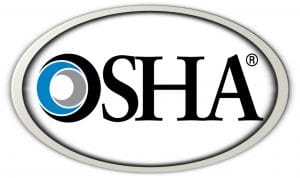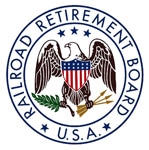As we celebrate Black History Month in February 2017, read about the groundbreaking inventions from African-American inventors that had a major impact across all American labor sectors, including the transportation industry:
Andrew Jackson Beard, born a slave in Alabama, became a railroad employee and invented the Jenny coupler in 1897 after losing a leg using the dangerous link-and-pin coupler. The Jenny coupler, utilizing interlocking jaws, was the first automatic coupler allowing brakemen to avoid having to risk limbs while manually coupling cars. That same year, Congress enacted the first of the Federal Safety Appliance acts, requiring railroads to utilize automatic couplers.
Elijah McCoy invented an automatic lubricator for oiling steam engines in 1872.
Garrett Augustus Morgan invented a three-way non-electric automatic semaphore stop sign in 1923, which was the precursor to three-light electric traffic signals.
Granville Woods, known as the “Black Edison,” was a railroad fireman and locomotive engineer who invented a telegraph system in 1887 that was used to communicate between trains and tower telegraphers to advise the distance between moving trains. He also invented overhead electric conducting lines in 1888 — now known as catenary wires; and a railroad air brake in 1902.
In Baltimore, Md., Amtrak and B&O railroad celebrates Black History Month by highlighting the contributions of African Americans at the B&O Railroad Museum in Baltimore, Md. Click here for more information.
To visit the recently-opened National Museum of African American History and Culture, click here.
For information on the hard-fought, centuries-long struggle by African Americans to attain equality, justice, civil rights and human rights – and the significant contributions and achievements from African Americans across all sectors of American society, click here.
Author: amyr
John P. Schneider, 54, of Spokane Valley, Wash., was hit and killed by a Union Pacific train while working near the Wallula train yard in Walla Walla County, Wash., Jan. 31.
Schneider had been a member of Local 1505 in Spokane, Wash., since 2004. He loved to read, was a survivalist enthusiast and a member of The Church of Jesus Christ of Latter-day Saints.
Schneider is survived by his wife, Karen; two sons, John Patrick and Jacob; two daughters, Jackie (Dan) Cook and Jessica (Brandon) Grimmett; three grandchildren, Lucy, Calvin and Olive; a sister, Marcie (Kelly) Roberts; and a brother, Cliff Schneider. His parents, John and Marjorie Schneider, preceded him in death.
Funeral services will be held at 2 p.m., Friday, Feb. 10, at The Church of Jesus Christ of Latter Day Saints, 14111 E. 16th Ave., Spokane Valley, WA 99037. The family will receive friends at 1 p.m., prior to services at the church.
Click here to view the official obituary and to leave condolences for the family.
A GoFundMe account has been set up by Local 1505 to help the family with expenses. Click here to make a donation.
SMART TD extends their condolences to the Schneider family, friends and members of Local 1505.
Friends of fallen Brother, John P. Schneider, recently set up a Go Fund Me account that is accepting donations in support of Brother Schneider’s family.
Click here to donate.
Schneider, 54, of Spokane Valley, Wash., was hit and killed by a Union Pacific train on Tuesday, Jan. 31. The accident occurred near the Wallula train yard in Walla Walla County, Wash. No one else was injured in the accident.
Schneider had been a member of Local 1505 in Spokane, Wash., since 2004. SMART TD extends their condolences to the Schneider family, friends and members of Local 1505.
Information about funeral arrangements will be posted as it is available.
Click here to read more from KEPRtv.com Action News.

Attendance will be limited to 35 registrants. Attendees will be accepted on a first-come basis. Those interested in attending are instructed to contact Alyssa Patchin by calling (216) 228-9400, or by email at apatchin@smart-union.org as soon as possible to reserve a spot in the class.
While all treasurers will likely benefit from this workshop, newly elected treasurers are strongly encouraged to attend. The workshop will provide local treasurers with training on the responsibilities and reporting duties pertaining to the office, including direct receipts and WinStabs. It will also focus on the completion of mandatory filings with the IRS and Department of Labor as well as instructions on completing a monthly billing properly.
Training sessions will be conducted by SMART TD Field Auditors.
If possible, attendees should bring a notebook computer and USB flash drive.
The three-day training session comes at no cost to the local. However, the local is responsible for all expenses associated with the treasurer’s attendance. Lost time or salary, travel, hotel and meal expenses connected with attendance may be reimbursed if pre-approved at a local meeting as an allowable expense.
Tire builder Jesse Isbell outlines in his recent blog post how the Right-to-Work bill is nothing more than a pack of lies intended to break unions and make the rich richer.
Isbell and thousands of his co-workers lost their jobs when the Oklahoma City Bridgestone Tire plant that was the core of an entire community, closed – a casualty of the passage of Right to Work legislation in his home state of Oklahoma.
Read how the so-called Right-to-Work measure devastates working families across our country and has a detrimental economic impact on everyone – union or not, from medium.com, here.

In early to mid-2010, the agent was investigating an Amtrak contractor that had been convicted in a New York state court for fraud in examining and testing concrete at building projects in the New York City area. This Amtrak contractor had performed testing on certain Amtrak tunnel projects. Strongly believing it was necessary for safety and security reasons, the agent raised safety concerns regarding work performed by this contractor on Amtrak projects.
Then, in October 2010, the agent gave Amtrak’s Dispute Resolution Office information and provided support for a fellow employee who had received a letter of reprimand after he raised safety concerns in a separate matter. The following month, the agent received his first-ever negative performance review. In March 2011, Amtrak notified him that – as a part of an overall reorganization – his position was being eliminated. In the course of the next few months, the agent applied for other positions, but was told that he lacked the required law enforcement training, despite a 40-year law enforcement career that included equivalent training. In June 2011, Amtrak notified the agent that he would be terminated due to his not being placed in a new position.
The terminated agent later filed a whistleblower complaint with OSHA. After concluding its investigation, the agency determined that the complainant engaged in protected Federal Railroad Safety Act activities when he raised concerns about safety issues related to work conducted by the Amtrak contractor and when he expressed his support of his fellow agent’s safety complaints. OSHA also found these protected activities contributed as factors in his termination by Amtrak.
“In this case, an employee was terminated for pursuing and reporting safety concerns. The employer’s retaliation is unacceptable and illegal. Federal law gives rail carrier employees the right to raise safety, health and security concerns with their supervisors without fear of retaliation. When retaliation occurs, it can have a chilling effect on employees and create a climate of silence where employees’ fear to speak up masks conditions that could impact their health and well-being, and that of their customers,” said Jeffrey Erskine, OSHA’s acting New England regional administrator.
OSHA has issued a notice of findings to Amtrak ordering it to take the following corrective actions:
- Reinstate the employee to his former or a similar position with all rights, seniority and benefits he would have received had he not been discharged.
- Pay him a total of $892,551, which is comprised of $723,332 in back wages plus $34,218 in interest; $100,000 in punitive damages; $35,000 in compensatory damages; plus reasonable attorney’s fees and costs.
- Expunge from Amtrak’s records all references related to his discharge and exercise of his FRSA rights; make no adverse statements concerning his employment at Amtrak; and not retaliate or discriminate against him in any manner.
- Post a notice to all railroad employees about their FRSA rights.
The employee and Amtrak each have 30 days from receipt of OSHA’s findings to file objections and request a hearing before the Labor Department’s Office of Administrative Law Judges.
OSHA enforces the whistleblower provisions of the FRSA and 21 other statutes protecting employees who report violations of various airline, commercial motor carrier, consumer product, environmental, financial reform, food safety, health care reform, nuclear, pipeline, worker safety, public transportation agency, railroad, maritime and securities laws.
Employers are prohibited from retaliating against employees who raise various protected concerns or provide protected information to the employer or to the government. Employees who believe that they have been retaliated against for engaging in protected conduct may file a complaint with the Secretary of Labor to request an investigation by OSHA’s Whistleblower Protection Program. Detailed information on employee whistleblower rights, including fact sheets, is available at http://www.whistleblowers.gov.
Under the Occupational Safety and Health Act of 1970, employers are responsible for providing safe and healthful workplaces for their employees. OSHA’s role is to ensure these conditions for America’s working men and women by setting and enforcing standards, and providing training, education and assistance. For more information, visit http://www.osha.gov.

Click here for a list of conferences.
Online registration for each informational conference will be available 60 days prior to the date of the conference. Registration is available now for March and April conferences.
Click here to register online.
WALLA WALLA COUNTY, Washington — John P. Schneider, 54, of Spokane Valley, Wash., was hit and killed by a Union Pacific train around 5 a.m. Tuesday, Jan. 31. The accident occurred near the Wallula train yard in Walla Walla County, Wash. No one else was injured in the accident.
Schneider had been a member of Local 1505 in Spokane, Wash., since 2004. SMART TD extends their condolences to the Schneider family, friends and members of Local 1505.
Information about funeral arrangements will be posted as they become available.
Click here to read more from Action News.
Members in Missouri & New Hampshire: Call your State House Representatives!
The state of Missouri recently passed a right-to-work (for less) bill in the State Senate, 21-12. A similar bill is expected to pass in the state’s House as well. If the bill passes in the State House, Mo. Governor Eric Greitens (R) has pledged to sign the bill into law.
If you live in Missouri, now is the time to contact your legislators and tell them that you don’t want Missouri to become a right-to-work (for less) state. Click here to find your Representative and their contact information.
In a much closer vote, the New Hampshire State Senate voted 12-11 to pass right-to-work (for less). The bill now heads to the Republican-controlled House for a vote. N.H. Governor Chris Sununu (R) has indicated that he will sign the bill into law if it passes in the State House.
Members from New Hampshire: click here to find your Representatives and their contact information.
According to the AFL-CIO, states that have enacted these so-called right-to-work laws have lower wages and incomes (about $6,000 less per year); little or no health insurance coverage and pay higher premiums; higher poverty rates; higher workplace fatality rates by 49 percent; and lower investments in education. These laws not only hurt unions, but the members who depend on the union as well.
Call your legislators today and tell them that you don’t want right-to-work (for less) in your state!
PORTLAND, Maine — A Portland man who drove his car around the gates at a railroad crossing as an Amtrak train approached could face charges. Derso Mekonen, 56, drove his car around a line of vehicles stopped at a railroad crossing, Friday, Jan. 27, and collided with an Amtrak Downeaster train.
Mekonen was treated for minor injuries. Amtrak reports that no passengers or crew on the train were hurt.
Portland police told the Bangor Daily News that they are still investigating, but anticipate that charges will be filed against Mekonen.
Read more from the Bangor Daily News.
